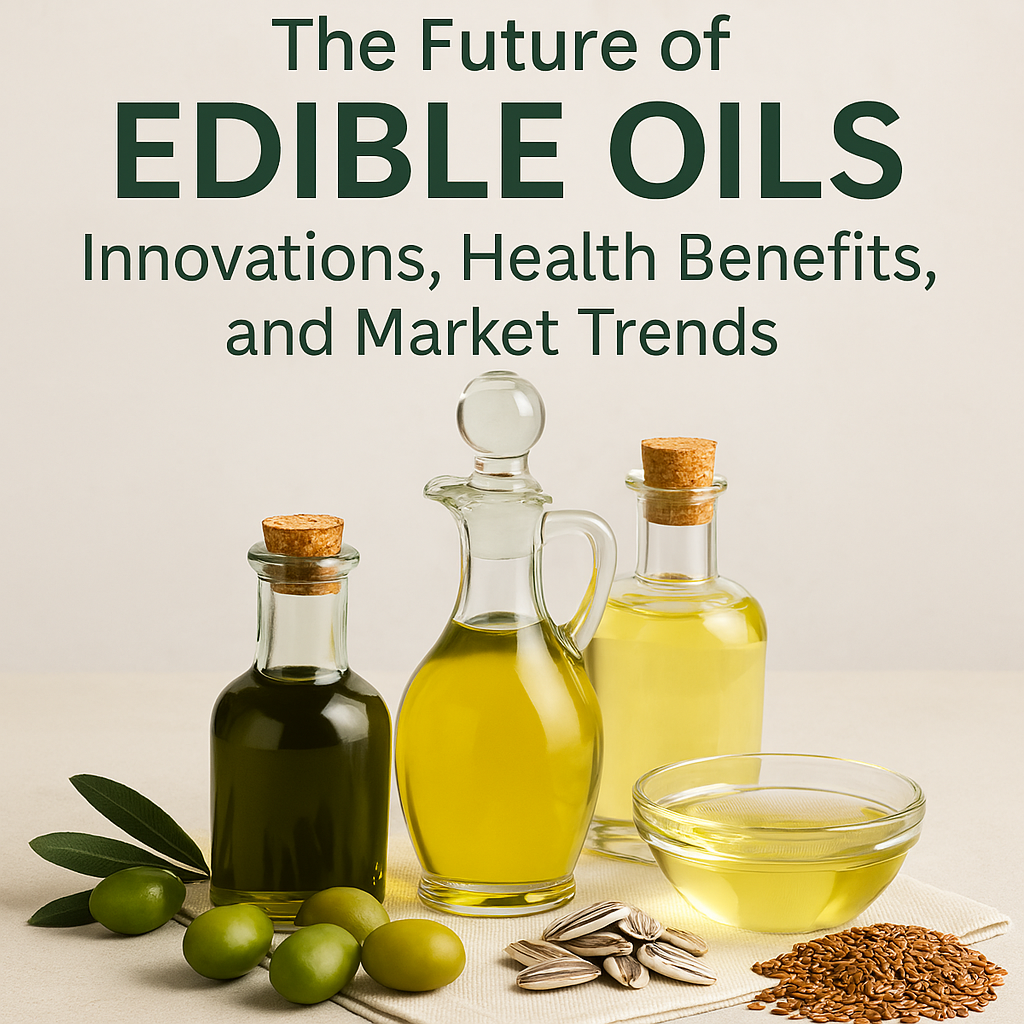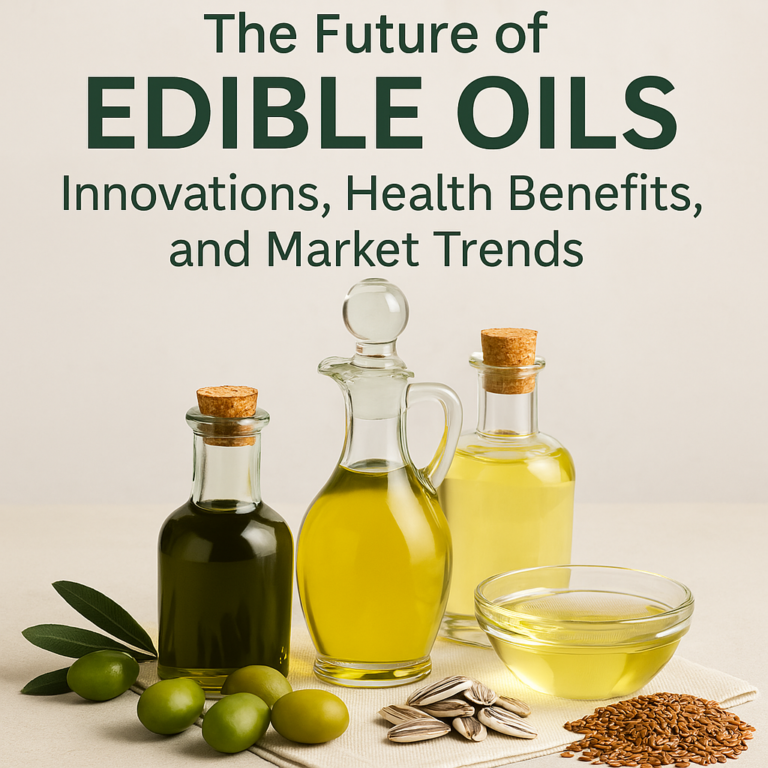
Edible oils play a crucial role in global food systems, serving as essential ingredients in cooking, food manufacturing, and even health applications. As consumer preferences evolve, the edible oil industry is undergoing significant transformations, driven by health concerns, sustainability efforts, and technological advancements. This article explores the future of edible oils, highlighting innovations, health benefits, and emerging market trends.
The Shift Towards Healthier Edible Oils
Consumers are increasingly prioritizing health when choosing cooking oils. Traditional oils like palm and soybean oil, often criticized for their high saturated fat content, are being replaced by healthier alternatives. Oils rich in unsaturated fats, such as olive, avocado, and canola oil, are gaining popularity due to their heart-healthy benefits.
New research is also shedding light on lesser-known oils, such as algae oil, which contains high levels of omega-3 fatty acids, and perilla oil, which has anti-inflammatory properties. The demand for cold-pressed and organic oils is also growing as consumers seek minimally processed options.
Technological Innovations in Oil Extraction and Processing
Advancements in extraction and processing technologies are revolutionizing the edible oil industry. Cold pressing and supercritical CO2 extraction techniques are being refined to retain more nutrients and enhance flavor while minimizing chemical residues.
Artificial intelligence (AI) and blockchain technology are also improving traceability and quality control. Companies are leveraging AI-driven analytics to optimize oil extraction yields, reduce waste, and maintain consistency in product quality. Blockchain solutions ensure transparency by tracking the entire supply chain, reassuring consumers about the authenticity and purity of their chosen oils.
Sustainability and Ethical Sourcing in the Oil Industry
Environmental concerns are shaping the future of edible oils. The production of palm oil, for instance, has long been associated with deforestation and habitat destruction. In response, sustainable palm oil initiatives such as RSPO (Roundtable on Sustainable Palm Oil) certification are promoting responsible sourcing practices.
Alternatives like algae-based and microbial oils are emerging as environmentally friendly options. These oils require less land and water to produce, offering a more sustainable solution to meet the growing demand for edible fats and oils.
Functional Oils and Their Expanding Role in Health and Wellness
Beyond basic nutrition, functional edible oils are gaining traction for their additional health benefits. Examples include:
- MCT Oil (Medium-Chain Triglycerides): Popular in keto diets for its ability to boost energy and metabolism.
- Flaxseed Oil: Rich in alpha-linolenic acid (ALA), which supports brain and heart health.
- Hemp Seed Oil: Known for its balance of omega-3 and omega-6 fatty acids, beneficial for inflammation and skin health.
- Black Seed Oil: Traditionally used in alternative medicine for its antibacterial and immune-boosting properties.
Consumers are increasingly integrating these oils into their diets for targeted health benefits, driving demand for specialty oil products.
The Rise of Plant-Based and Alternative Oils
The shift towards plant-based diets is influencing the edible oil sector. Vegan butter alternatives made from coconut, cashew, and macadamia oils are gaining traction as consumers seek dairy-free options. Similarly, plant-based meat companies are innovating with oil blends to replicate the texture and flavor of traditional meats.
Researchers are also exploring novel sources of edible oils, such as seaweed oil, which offers a unique umami taste and is rich in polyunsaturated fats. These innovations are expected to reshape the market by providing healthier and more sustainable options for consumers.
Market Trends and Economic Outlook
The global edible oil market is projected to continue growing, driven by population increases, urbanization, and rising health consciousness. The demand for premium, specialty oils is particularly strong in North America and Europe, where consumers are willing to pay higher prices for organic, non-GMO, and sustainable options.
In contrast, emerging markets in Asia and Africa are experiencing rising consumption of palm and soybean oil due to their affordability and widespread availability. However, regulatory changes and health awareness campaigns may drive a gradual shift towards healthier alternatives in these regions as well.
The Future of Edible Oils: What to Expect
Looking ahead, the edible oil industry will likely continue evolving in the following ways:
- Increased Focus on Transparency: Clearer labeling, QR codes for sourcing details, and third-party certifications will become more common.
- Hybrid Oils: Blended oils that combine the best properties of different sources (e.g., olive and flaxseed) will gain popularity.
- Personalized Nutrition: AI-driven health recommendations may lead to tailored oil blends based on individual dietary needs.
- Greater Use of Byproducts: Waste from oilseed processing will be repurposed into value-added products, reducing environmental impact.
Conclusion
The edible oil industry is undergoing a dynamic transformation, fueled by health awareness, technological innovations, and sustainability concerns. As new sources and processing techniques emerge, consumers will have more choices than ever before. By prioritizing health, sustainability, and ethical sourcing, the future of edible oils looks promising, offering better options for both people and the planet.



